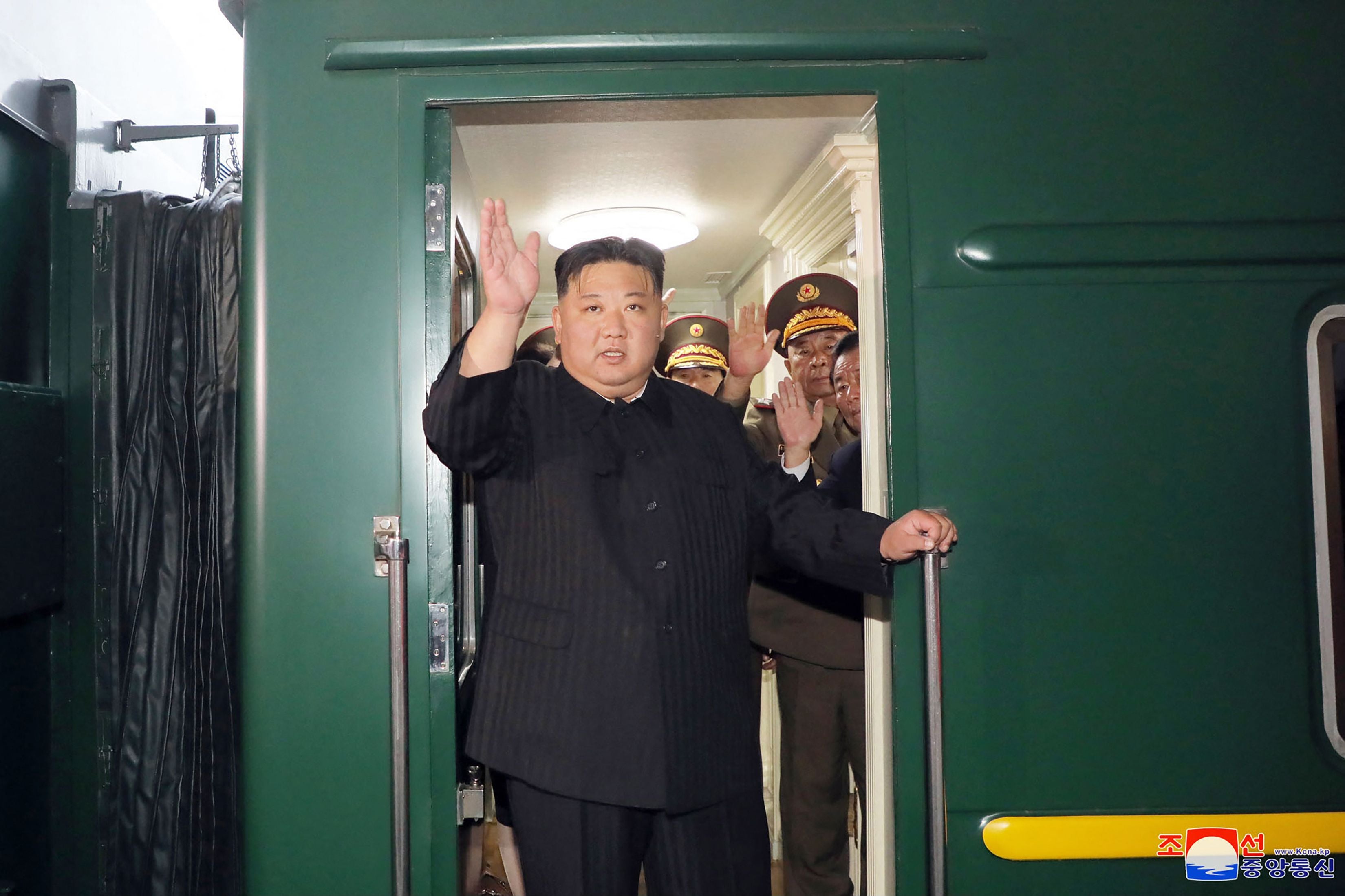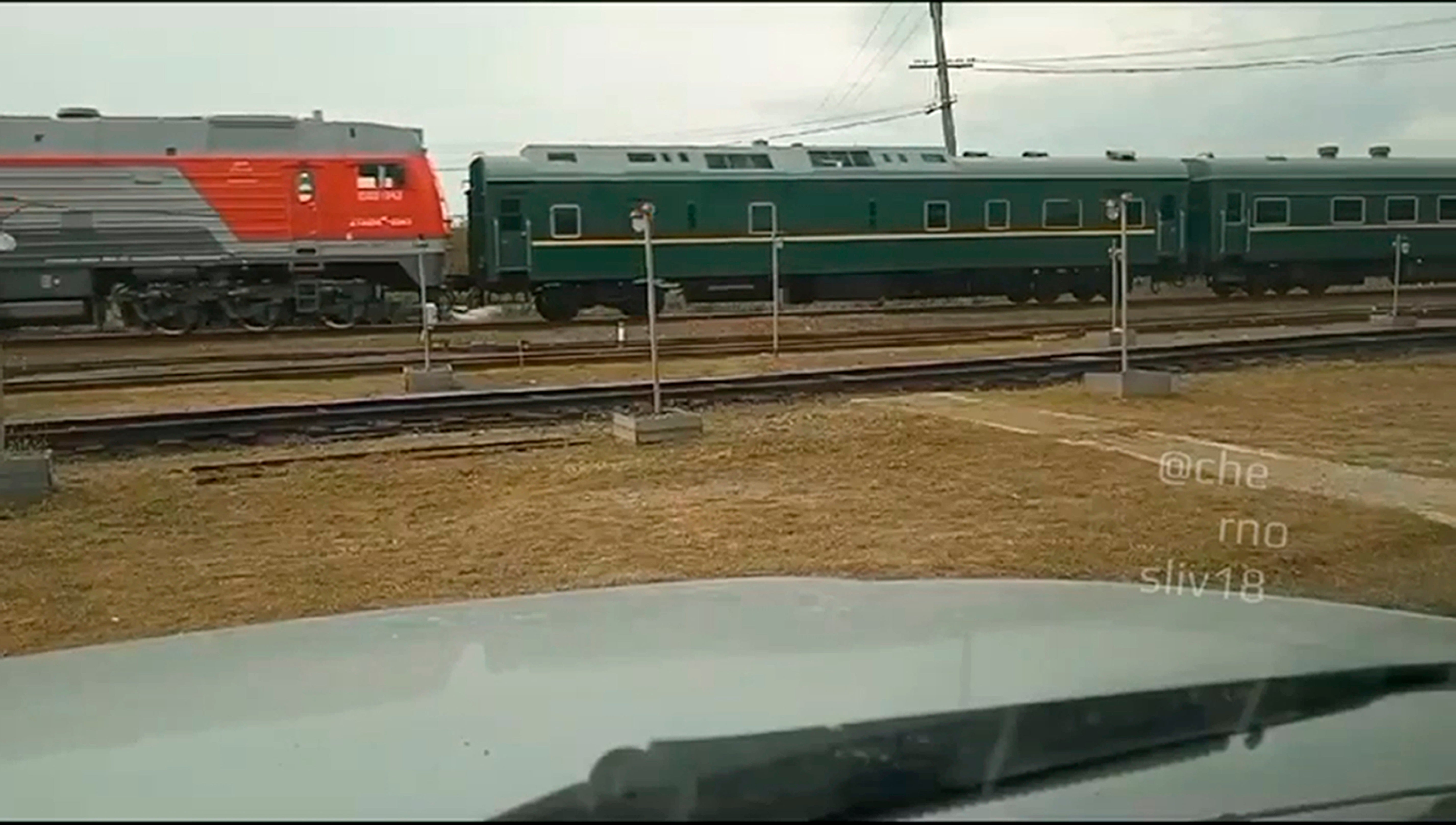Live lobsters, cases of wine and bulletproof carriages: Inside Kim Jong-un’s train to meet Putin
The North Korean leader’s favourite mode of transport is slow, but opulent
Your support helps us to tell the story
From reproductive rights to climate change to Big Tech, The Independent is on the ground when the story is developing. Whether it's investigating the financials of Elon Musk's pro-Trump PAC or producing our latest documentary, 'The A Word', which shines a light on the American women fighting for reproductive rights, we know how important it is to parse out the facts from the messaging.
At such a critical moment in US history, we need reporters on the ground. Your donation allows us to keep sending journalists to speak to both sides of the story.
The Independent is trusted by Americans across the entire political spectrum. And unlike many other quality news outlets, we choose not to lock Americans out of our reporting and analysis with paywalls. We believe quality journalism should be available to everyone, paid for by those who can afford it.
Your support makes all the difference.North Korea’s Kim Jong-un has arrived in Russia for a meeting with Vladimir Putin using his favourite mode of transport – a luxurious, heavily armoured, extremely slowing moving train painted a distinctive shade of green.
While Mr Kim appears to have not inherited his father Kim Jong-il’s reported fear of flying, he has continued the tradition started by his grandfather, Kim Il-sung, the founder of North Korea of predominantly travelling by rail.
Mr Kim boarded the train and Sunday, alongside officials from Pyongyang’s arms industry, military officers and the country’s defence minister, offering plenty of time to sample the luxuries it is said to contain. The Russian and North Korean leaders are expected to discuss Mocow’s need for more weapons and ammunition to supply its war machine in Ukraine.
Few outside Pyongyang’s military and political elite have travelled on the train, but pictures from state media show the interiors as being painted a glossy white, with long tables for meetings. Other pictures also show officials in opulent red leather armchairs. The train has conference rooms, audience chambers and bedrooms, with satellite phones and flat-screen televisions installed for briefings.
One of the most detailed accounts of travel aboard a North Korean leader’s train came from a Russian official, Konstantin Pulikovsky, who recounted a trip across Russia’s Far East with Kim Jong -il in a book called Orient Express. He described a gourmet menu with a wide variety of food on offer.

“It was possible to order any dish of Russian, Chinese, Korean, Japanese and French cuisine,” Mr Pulikovsky wrote, adding that there were cases of Bordeaux and Burgundy wines and live lobsters. The travellers aboard the train were entertained by young female singers, who were introduced as “lady conductors,” Pulikovsky recounted.
An article from the South Korean newspaper Chosun Ilbo, citing intelligence reports, said the train has a total of 90 rail cars. Georgy Toloraya, another Russian diplomat who traveled with Kim Jong-il in 2001, later wrote that two armored Mercedes cars were carried on that trip.

Mr Toloraya said that during an examination of the train by Russian technicians, discovered that the railcars originated from the Soviet Union, but had undergone extensive modifications at some later date. They also found armoured sheets positioned beneath two primary railcars employed by the North Korean leader for both residential and official functions – with the likelihood of further plating elsewhere.
This ensures a maximum speed believed to be about 55 miles per hour and a cruising speed believed to be below 40mph.

Trains can prove a relatively inconspicuous way to travel compared with planes, which can be spotted with flight-tracking data or radar. But beyond the slow speed, this train can brings other complications.
Russia’s rail network uses a different size gauge than the one used on the Korean Peninsula, which would have meant a long wait to change wheels when Mr Kim reached Khasan station, the main rail gateway to Russia’s far east.
The report by Chosun Ilbo, approximately 100 security agents are dispatched in advance to railway stations to conduct security sweeps for potential threats.
Power is deliberately shut off at these stations to prevent other trains from departing.
The newspaper also noted the presence of a substantial logistical support contingent, which includes Soviet-made Il-76 air force transport planes and Mi-17 helicopters.
The train is said to travel in conjunction with two other trains – one in front that handles the security checks and another behind for bodyguards and other personnel.



Join our commenting forum
Join thought-provoking conversations, follow other Independent readers and see their replies
Comments